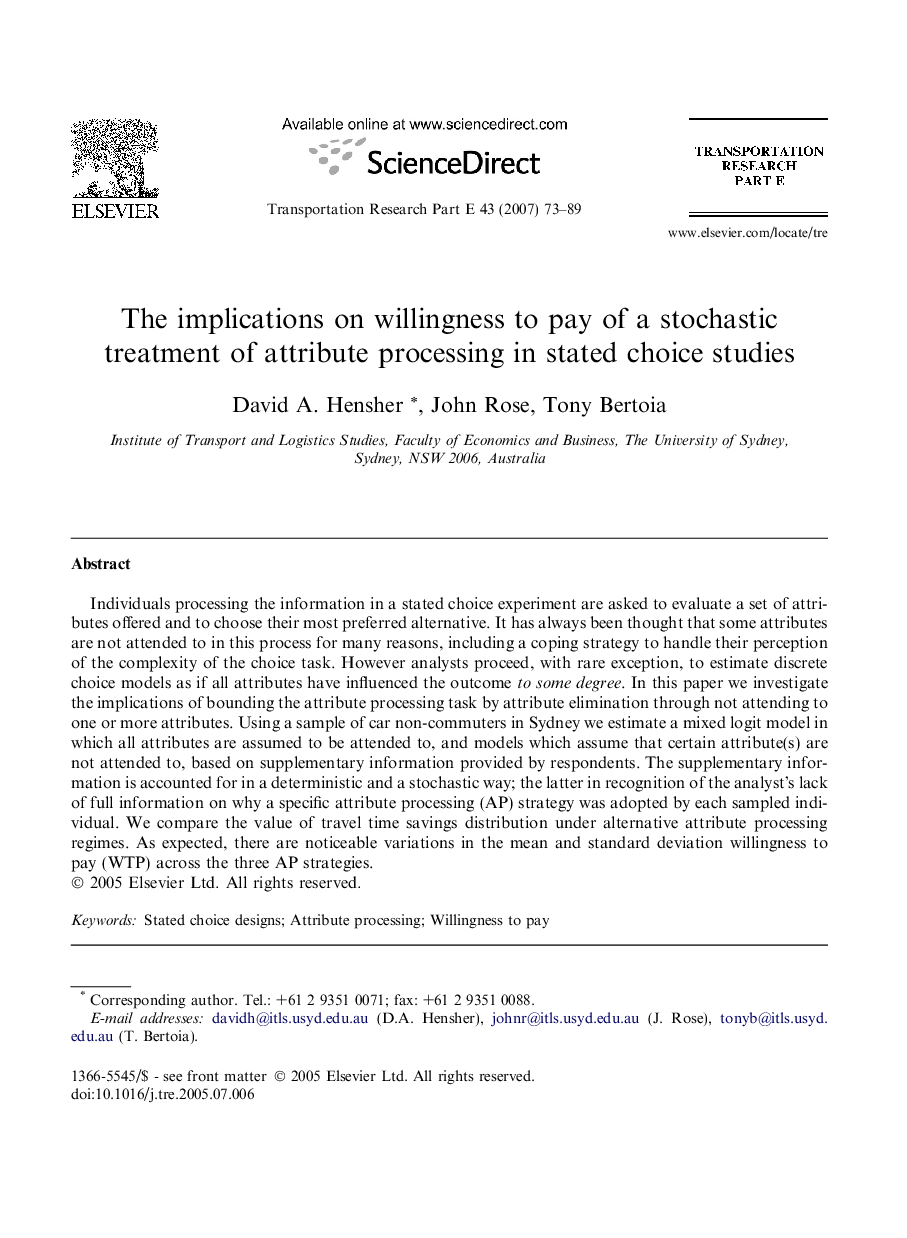| Article ID | Journal | Published Year | Pages | File Type |
|---|---|---|---|---|
| 1023938 | Transportation Research Part E: Logistics and Transportation Review | 2007 | 17 Pages |
Individuals processing the information in a stated choice experiment are asked to evaluate a set of attributes offered and to choose their most preferred alternative. It has always been thought that some attributes are not attended to in this process for many reasons, including a coping strategy to handle their perception of the complexity of the choice task. However analysts proceed, with rare exception, to estimate discrete choice models as if all attributes have influenced the outcome to some degree. In this paper we investigate the implications of bounding the attribute processing task by attribute elimination through not attending to one or more attributes. Using a sample of car non-commuters in Sydney we estimate a mixed logit model in which all attributes are assumed to be attended to, and models which assume that certain attribute(s) are not attended to, based on supplementary information provided by respondents. The supplementary information is accounted for in a deterministic and a stochastic way; the latter in recognition of the analyst’s lack of full information on why a specific attribute processing (AP) strategy was adopted by each sampled individual. We compare the value of travel time savings distribution under alternative attribute processing regimes. As expected, there are noticeable variations in the mean and standard deviation willingness to pay (WTP) across the three AP strategies.
